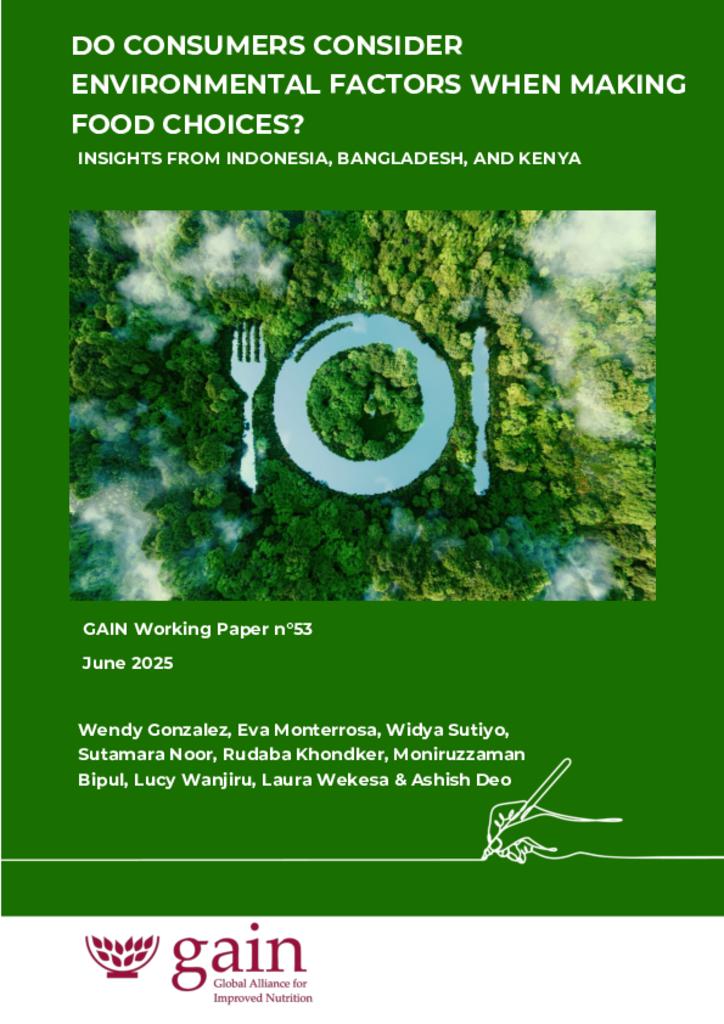The world is facing multiple interconnected crises, including climate change and escalating conflicts, which pose significant challenges to food systems. These issues highlight the need for systemic transformation to improve food security, nutrition, and environmental sustainability. In response, GAIN's Nourishing Food Pathways (NFP) programme aims to strengthen and support the implementation of food system pathways in 11 countries.
One focus of NFP is exploring the intersection between food and environment, including climate change, to identify consumer actions that promote both nutrition and environmental sustainability in low- and middle-income countries (LMICs). Specifically, GAIN is interested in understanding if our Emotivate™ approach, which leverages emotions to motivate consumers to want better diets, can be extended to include emotions or values associated with environmental sustainability. Our initial hypothesis was that consumers felt emotional tensions related to environmental sustainability as a driver of food choices, which could be leveraged to develop an emotionally resonant campaign.
GAIN thus conducted a formative study in Bangladesh, Indonesia, and Kenya to explore this further. The study revealed varying levels of environmental awareness across the three countries. Consumers were generally aware of environmental issues, but these concerns had limited impact on their daily lives and food choices. Food choices were driven by other factors, such as convenience and cost. Consumers often viewed environmental issues as a responsibility of governments and corporations, and they did not feel personally empowered or compelled to make significant changes. While consumers acknowledged the environmental impacts of packaging and food waste, these concerns had limited influence on food choices. These findings, counter to our original hypothesis, suggest that consumers are unlikely to respond to interventions that explicitly link food choices to environmental considerations as a key motivation for change. The programmatic implication is that it is important to frame messages to resonate with consumers’ values, while ensuring that promoted food choices are both nutritious and environmentally sustainable; next steps in the work will seek to do this.
